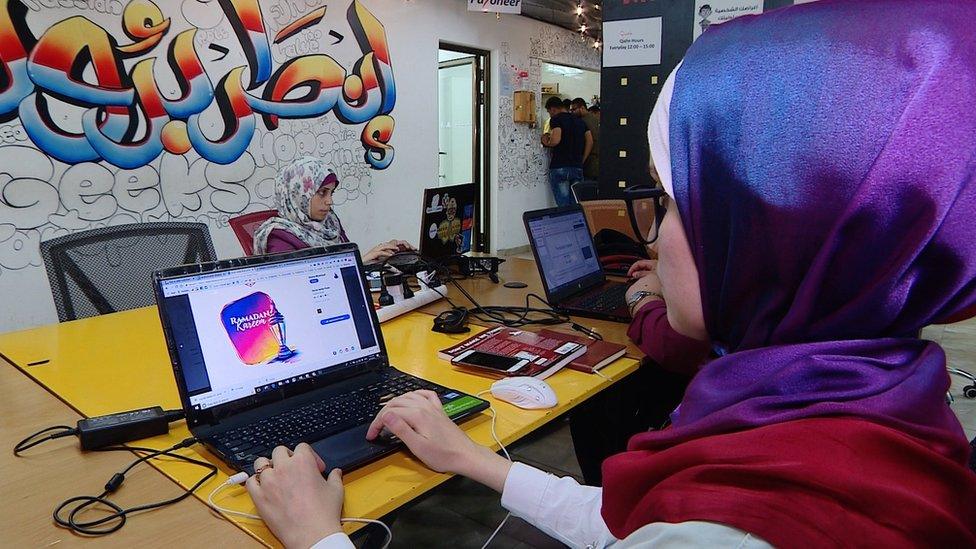Israel-Gaza: Deadly fire traded across border
- Published
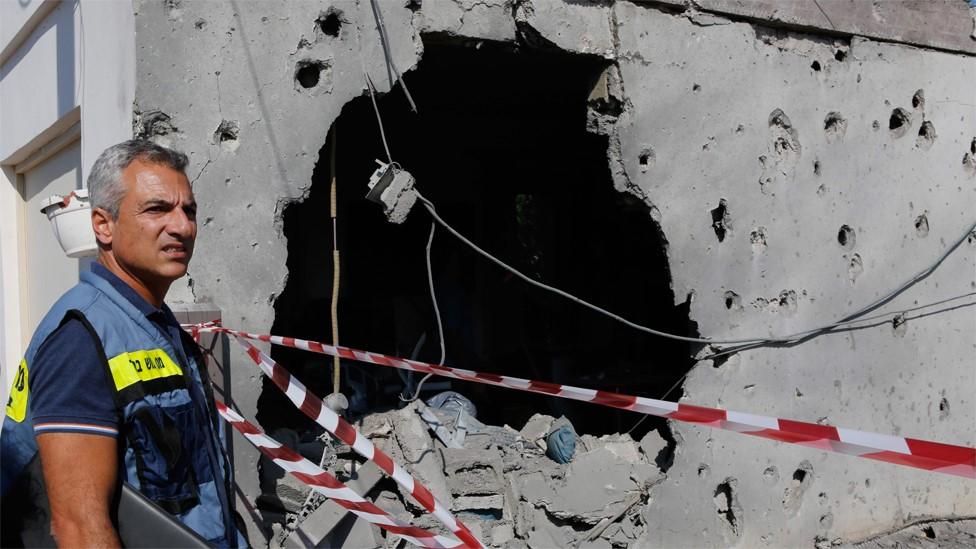
Buildings in the southern Israeli town of Ashkelon were hit by rockets fired from Gaza
Eight people have been killed in a flare-up of violence between Israel and Palestinian militants in Gaza.
More than 460 rockets have been fired into Israel by militants since Monday night, while Israeli aircraft have hit 160 militant targets in response.
Seven Palestinians, several of them militants, died in the strikes on Gaza, while a Palestinian civilian was killed in a rocket attack in southern Israel.
Later, Palestinian militant groups said Egypt had brokered a ceasefire.
The military wing of Hamas, the Islamist movement that dominates Gaza, said it would "abide by this declaration as long as the Zionist enemy commits to it".
A senior Israeli official appeared to confirm the report, external. Israeli media quoted the official as saying: "Israel maintains its right to act. Requests from Hamas for a ceasefire came through four different mediators.
"Israel responded that the events on the ground will decide [how it proceeds]."
The escalation began when an undercover Israeli special forces operation inside Gaza was exposed on Sunday. A Hamas commander was among seven militants killed in clashes, and an Israeli lieutenant-colonel in the undercover unit also died.
Recently there had been signs that the UN and Egypt had made progress in an effort to secure a truce on the Gaza border, where more than 200 Palestinians have been killed in protests since March.
The Israeli military has been accused of using excessive force against protesters, but has said its soldiers have only opened fire in self-defence or on potential attackers trying to infiltrate its territory.
How serious is the latest violence?
After a brief lull following Sunday night's violence, a barrage of rockets and mortars was launched towards Israel late on Monday, which Israeli medics said killed one person and injured 28.
A bus, which had reportedly been carrying troops, was hit by an anti-tank missile in the Shaar Hanegev region, external, seriously wounding a male soldier.
Allow X content?
This article contains content provided by X. We ask for your permission before anything is loaded, as they may be using cookies and other technologies. You may want to read X’s cookie policy, external and privacy policy, external before accepting. To view this content choose ‘accept and continue’.

Overnight, a man was killed when a block of flats in Ashkelon was hit by a rocket. He was later identified as a Palestinian from the occupied West Bank who had been working in Israel.
Eight other people were injured in the attack, including two women who the Israeli ambulance service said were in a serious condition.
In response, the Israel Defense Forces (IDF) carried out what it called a wide-scale attack against military targets belonging to the Hamas and Islamic Jihad groups.
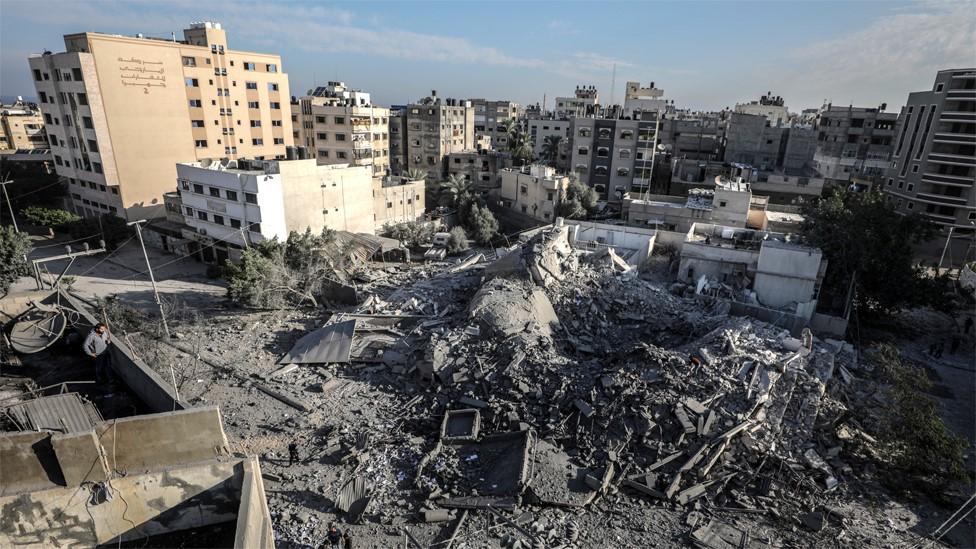
Israeli aircraft struck the Hamas interior security headquarters in Gaza City
It said they included Hamas's military intelligence headquarters in northern Gaza and "a unique vessel" in a harbour in the south of the territory.
The building housing Hamas's Al-Aqsa TV was also bombed after being evacuated. The IDF said the outlet "contributes to Hamas's military actions".
The Hamas-run Gaza health ministry said seven people were killed and 26 others injured in the strikes. At least four of the dead were militants; two are said to have been farmers in northern Gaza.
Allow X content?
This article contains content provided by X. We ask for your permission before anything is loaded, as they may be using cookies and other technologies. You may want to read X’s cookie policy, external and privacy policy, external before accepting. To view this content choose ‘accept and continue’.

This is one of the most serious rounds of fighting since Israel and Hamas fought a war in 2014.
The IDF has warned it is prepared to "dial up its response" to the rocket fire, while Hamas's military wing said it was ready to "expand the circle of fire" against Israel.
UN Middle East envoy Nickolay Mladenov said the escalation was "extremely dangerous" and that efforts were being made to pull Gaza "back from the brink".

Escalation threatens to derail truce efforts
By Tom Bateman, BBC News, southern Israel
This latest flare-up has shown again how swiftly the pendulum can swing from the brink of a longer-term truce to the brink of all-out conflict.
For months there has been quiet yet intensive shuttle diplomacy brokered largely by Egyptian intelligence officials and Nickolay Mladenov.
Hamas sought an easing of the Israeli and Egyptian blockade of Gaza amid deteriorating economic and humanitarian conditions, while Israel wanted calm on the Gaza perimeter.
Some limited results were starting to be delivered - literally, in the form of fuel for Gaza's power plant and $15m (£12m) in cash from Qatar, which was allowed into Gaza to help fund the salaries of unpaid Hamas civil servants.
But the indirect process also came under attack from internal critics on both sides, who saw it as a sign of unnecessary compromise or weakness.
The current escalation is likely to have strengthened those voices for now.

How did the violence start?
Palestinians said they discovered an undercover Israeli unit in a civilian car about 3km (2 miles) inside the Gaza Strip, east of Khan Younis, late on Sunday.
A firefight ensued in which the Hamas commander was killed. Israel launched air strikes and opened fire with tanks on the area, witnesses said. Six other militants were killed as well as one of the Israeli special forces soldiers.
Due to the secrecy of the operation, Israel has not revealed specific details about the mission.
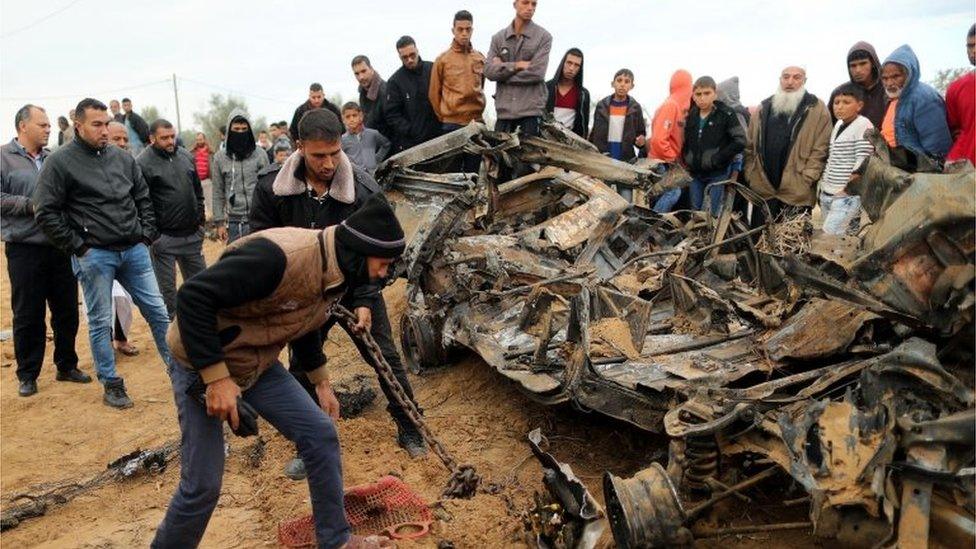
Israel carried out air strikes when Sunday night's firefight erupted
The IDF said, however, that the operation was "not intended to kill or abduct terrorists, but to strengthen Israeli security".
According to a former Israeli general, the incident was likely to have been an intelligence-gathering operation that went wrong.
A spokesman for Hamas denounced Sunday's incident as a "cowardly Israeli attack".
Why are Israel and Hamas enemies?
Hamas won Palestinian elections in 2006 and reinforced its power in the Gaza Strip after ousting West Bank-based Palestinian President Mahmoud Abbas's rival Fatah faction in clashes the following year.
While Mr Abbas's umbrella Palestine Liberation Organisation (PLO) has signed peace accords with Israel, Hamas does not recognise Israel's right to exist and advocates the use of violence against it.
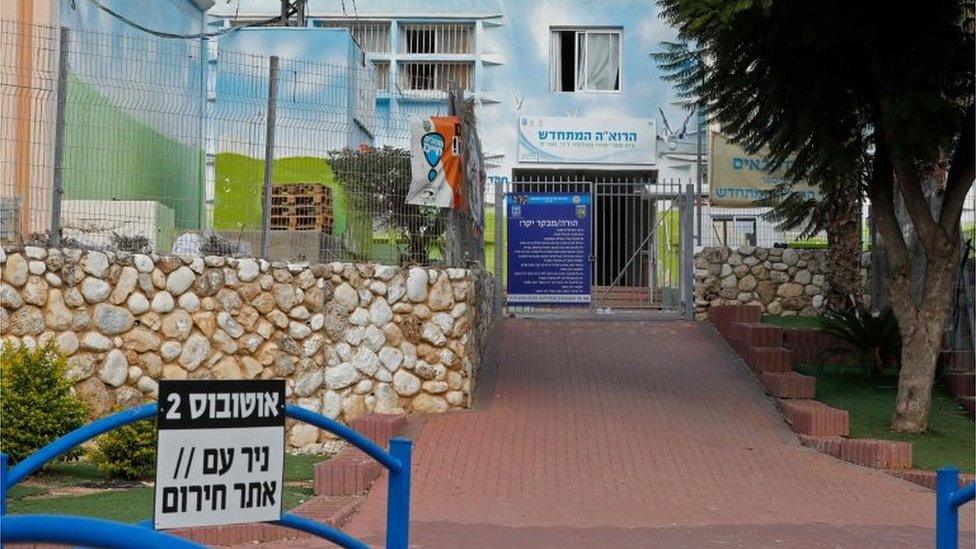
Schools have been ordered to close in Israeli border communities as a precaution
Israel, along with Egypt, has maintained a blockade of Gaza since about 2006 in order, they say, to stop attacks by militants.
Israel and Hamas have gone to war three times, and rocket fire from Gaza and Israeli air strikes against militant targets are a regular occurrence.
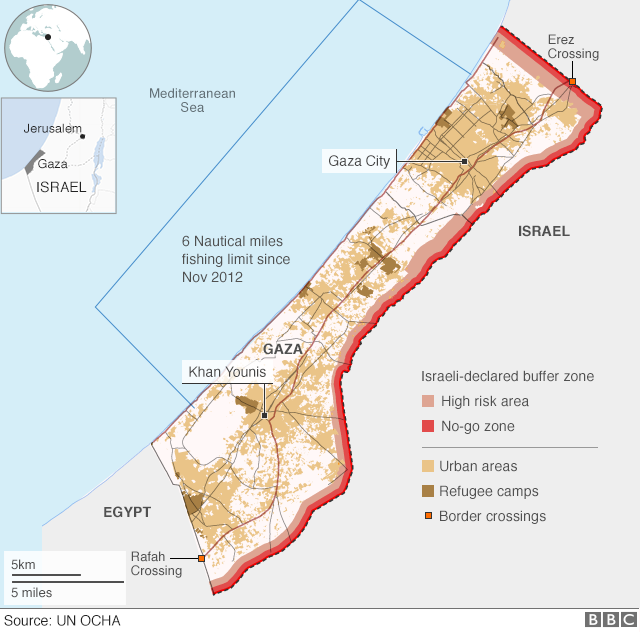

- Published23 October 2018
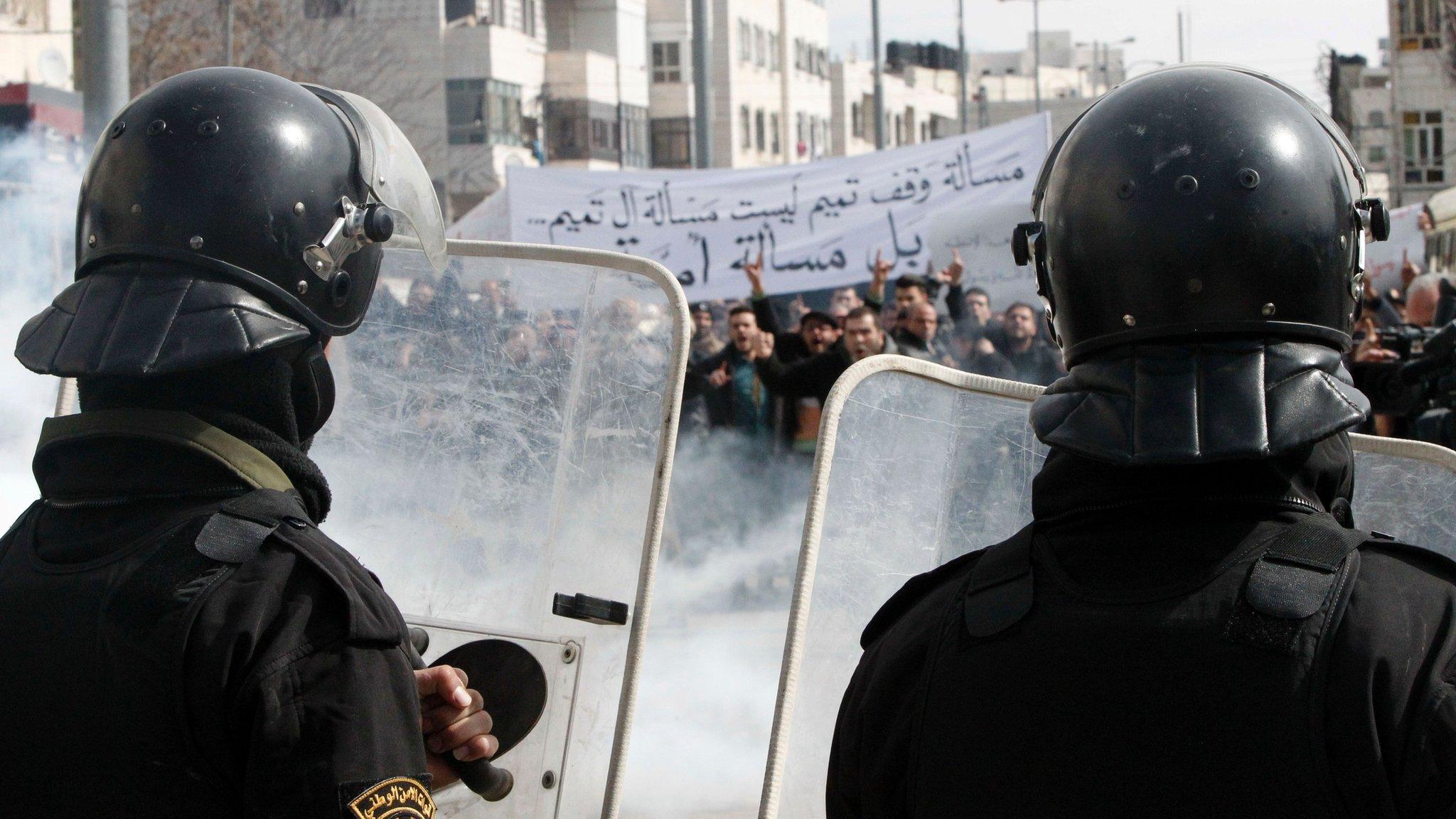
- Published25 October 2018
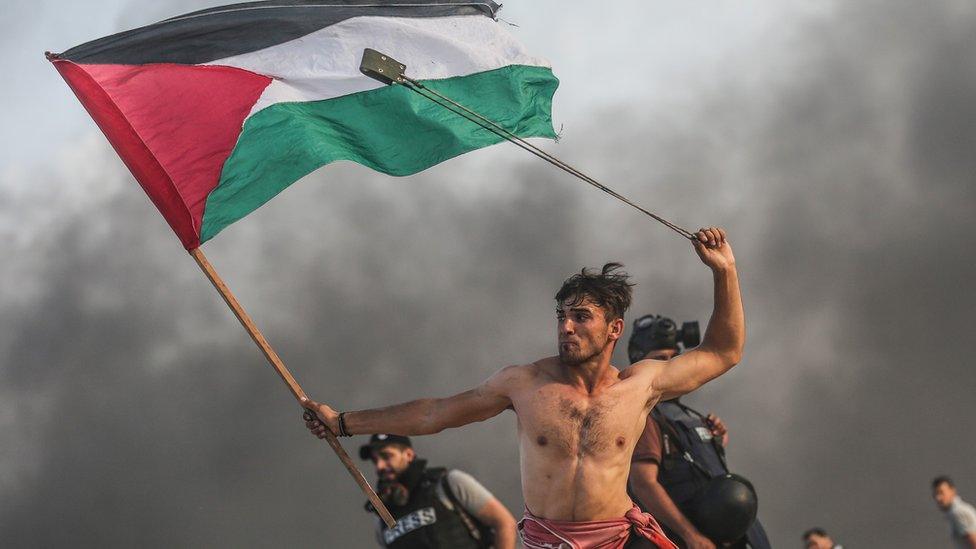
- Published17 May 2018
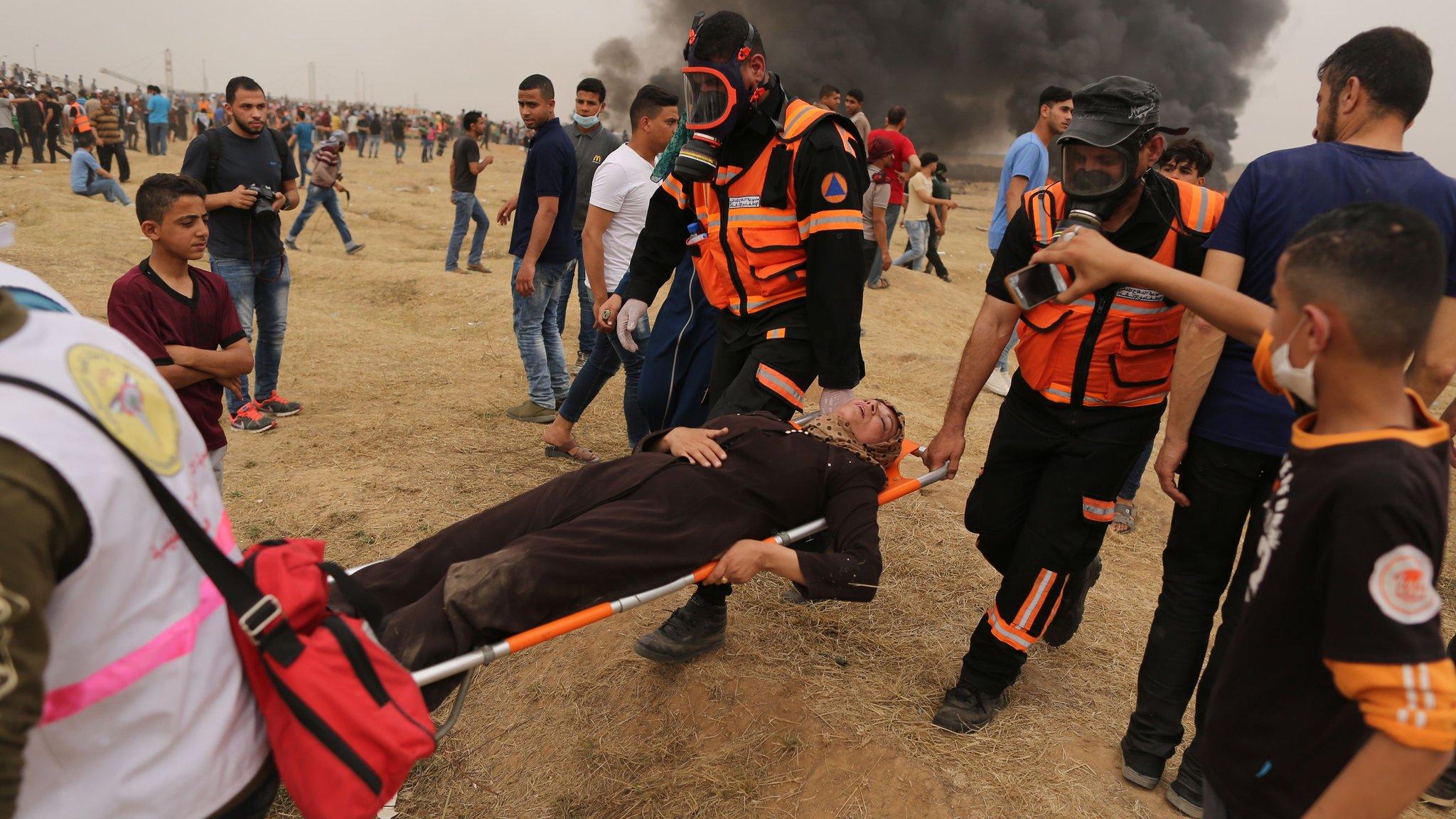
- Published16 January
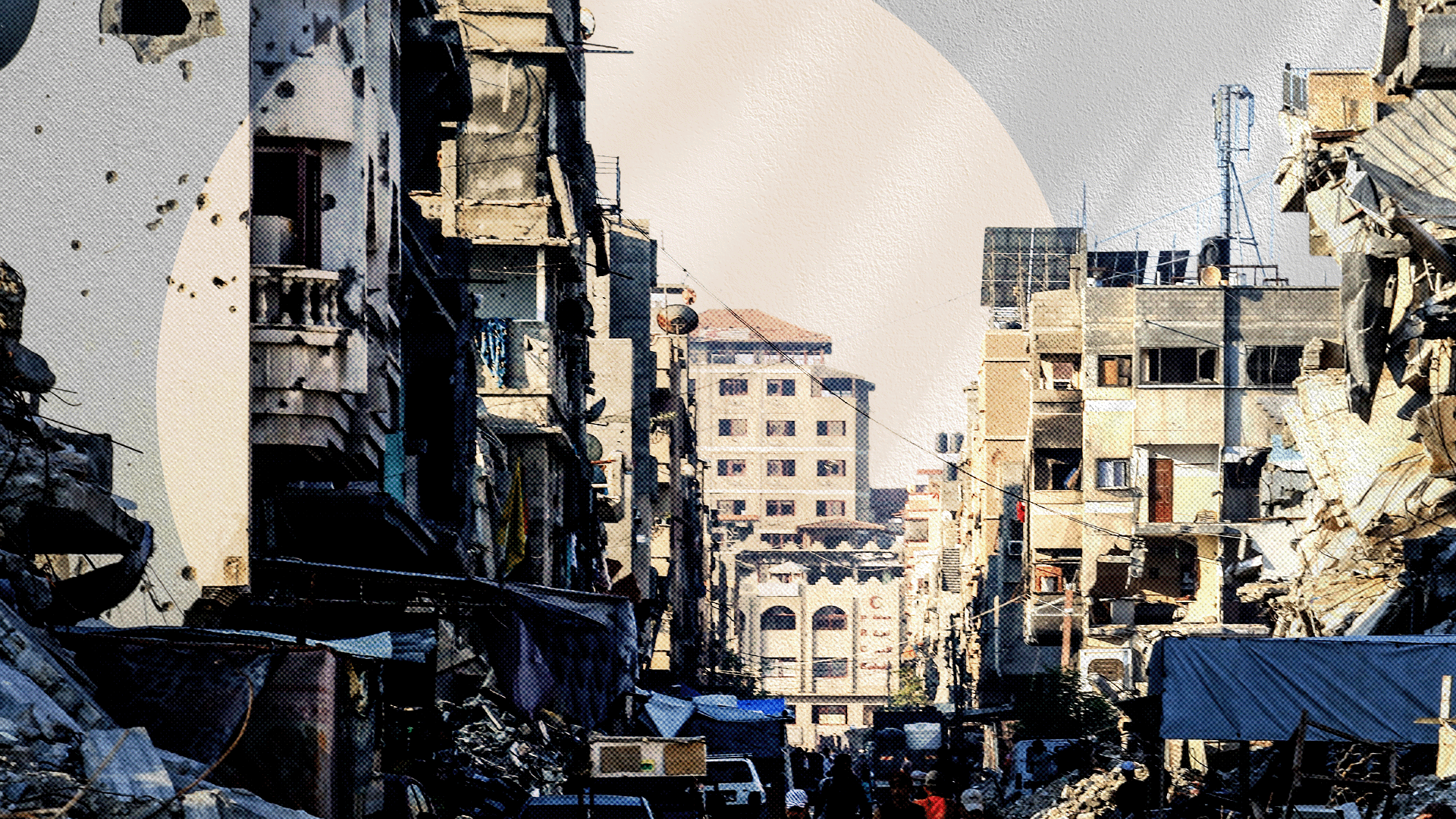
- Published1 October 2018
